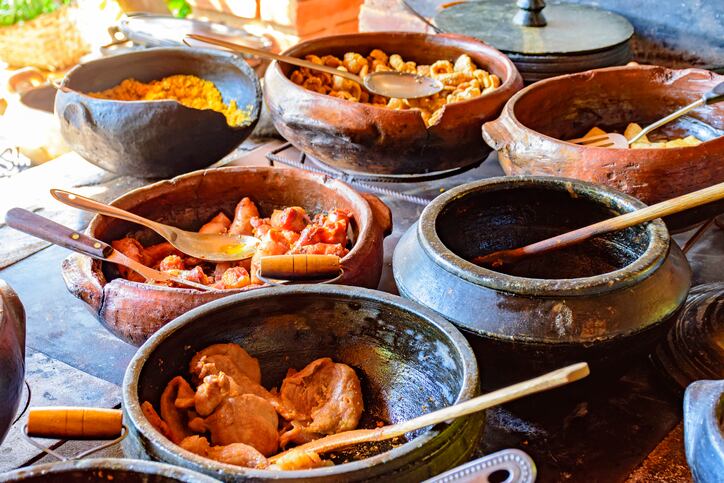São Paolo-based Mandala is the only company in Brazil that specializes in making food products that exclude not only “the big eight” but a total of 20 allergens including their derivatives such as soy lecithin.
The food company also aims to use 'whole' ingredients (shunning ready-made sauces or spice mixes, for example, and using fresh fruit and vegetables instead of tinned) while the chicken it uses is hormone- and antibiotic-free, and its packaging does not contain BPA or latex.
The company was founded in 2015 by Adriana Fernandes, who used to work in communications until her son was born with severe food allergies. To breastfeed him, she had to exclude gluten, milk, eggs, soy, nuts and other ingredients from her diet and struggled to maintain a healthy diet.
“I decided that maybe my personal pain wasn't only mine,” she told FoodNavigator-LATAM.

Four years later, Mandala's portfolio includes bread, desserts, snacks, and typical Brazilian dishes such as cheese bread, bean soup, and manioc cream.
Thanks to contracts with some of the biggest hospitals, schools, and hotels in São Paolo, its e-commerce platform and some recent supermarket listings, it now ships around 200,000 products a year.
Major manufacturers are also taking note of its success.
The company recently received investment from M. Dias Branco, which sells more than one-third of the pasta and biscuits in Brazil, through its Germinar start-up accelerator scheme. It has also been selected for Danone Nutricia's innovation challenge and last week Fernandes met with Unilever to share the story of the company.
Sourcing ingredients
The best-selling product in Mandala's cake range is a chocolate brownie that uses black beans instead of wheat, eggs, and butter while stroganoff and gnocchi (made with potato or cassava) are popular main meals.
One of the biggest challenges Mandala faces is finding suppliers that meet its strict ingredient policy. Fernandes jokes that she has become “better than the FBI” in investigating suppliers to ensure they respect Mandala’s allergen-free requirements.
Even though Brazilian law requires mandatory allergen labeling (see below), often when Mandala requests documentation from a potential supplier to ensure the products are allergen-free, it receives no answer.
“We spend a lot of time and effort validating suppliers,” she said. "Not only food suppliers, but also cleaning products, gloves, paper, and packaging.
“But as we [make food] for very sensitive people in hospitals, we can't make a mistake. So, sometimes, we don't develop a product, or stop producing one, in order to be 1000% sure we are safe.”
Warning: May contain confusing allergen advice
In 2014, a group of mothers founded a civil society organization called Põe no Rotulo (which translates as ‘Put it on the Label’) and launched a campaign to change Brazil’s food labeling laws.
The campaign, which was picked up by celebrities on social media, culminated in legislation RDC No. 26/15, approved in June 2015, which made the declaration of major allergens on processed food labels mandatory.
Põe no Rotulo hailed the legislation as “a milestone in the lives of people who live with food allergies and also a very significant moment in the history of food regulation in Brazil, as it had the active participation of citizens at all stages of the process”.
Brazil’s food labeling law requires manufacturers to list the following allergens: wheat, rye, barley, oats (and their hybridized strains), crustaceans, eggs; fish, soy; milk (from all animals), natural latex, peanuts, almonds, hazelnuts, cashews, brazil nuts, macadamias, walnuts, pecans, pistachios, pine nuts and chestnuts.
While this legislation has undoubtedly made things much easier, product labels are still a source of frustration for Fernandes.
A separate regulation that requires manufacturers to state if a product does or does not contain gluten can have confusing results.
“These two laws sometimes let people confused and so you find products with labels like: ‘Allergens: May contain wheat. Does not contain gluten.’”
“It is easier today in 2019 than it was in 2013 when my baby was born,” Fernandes told us, “but a lot of companies still do it wrong.”
Reducing food waste
Mandala also tries to keep its food waste to a minimum. Its production staff has continuous training to reduce food waste and once a week it does an inventory check.
If a product is nearing its expiration date, it offers it at a reduced price. If an ingredient is nearing its expiration date it organizes its production to use it the following week. If a production batch is safe to eat but cannot be sold for aesthetic reasons, it is donated to a food bank.

